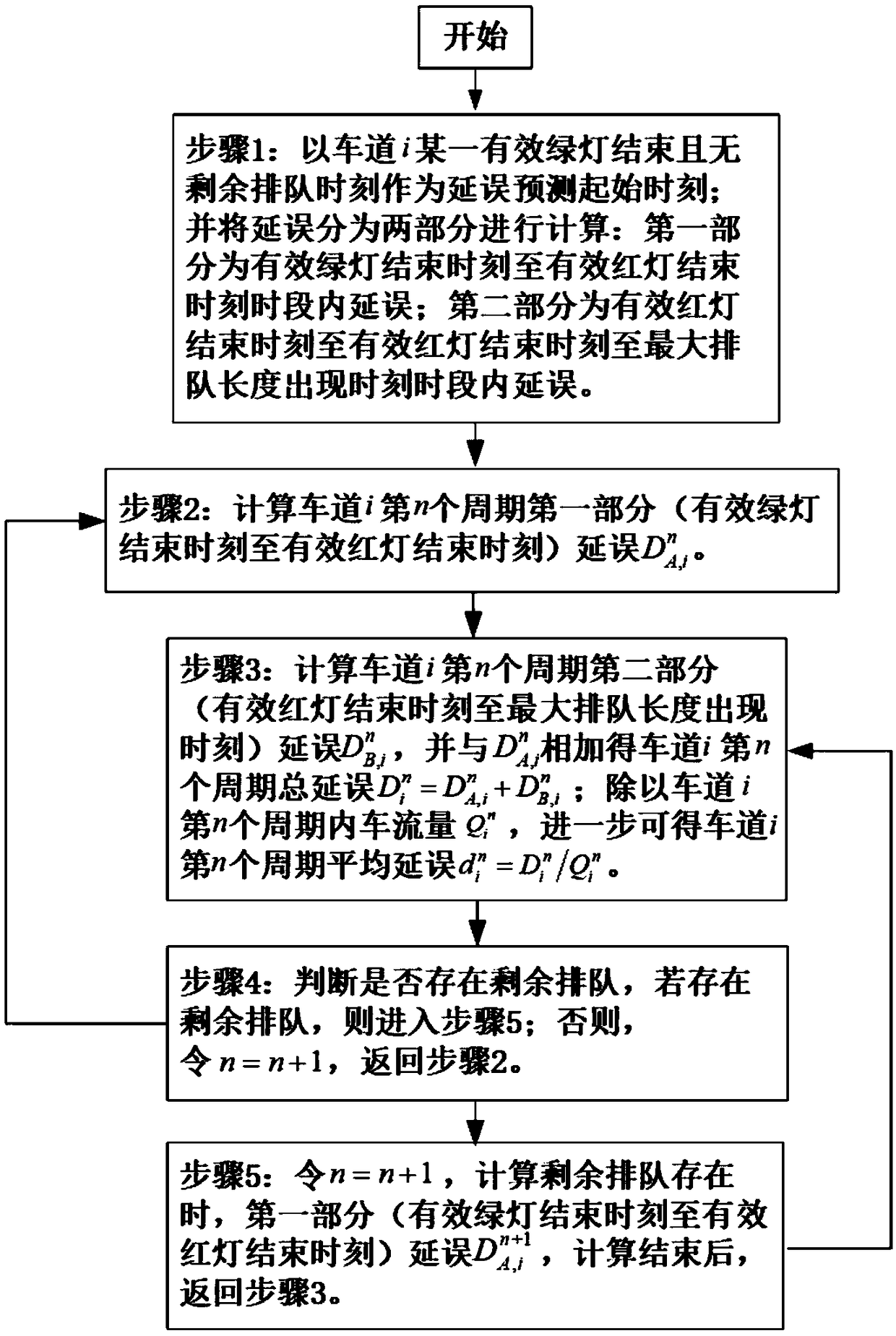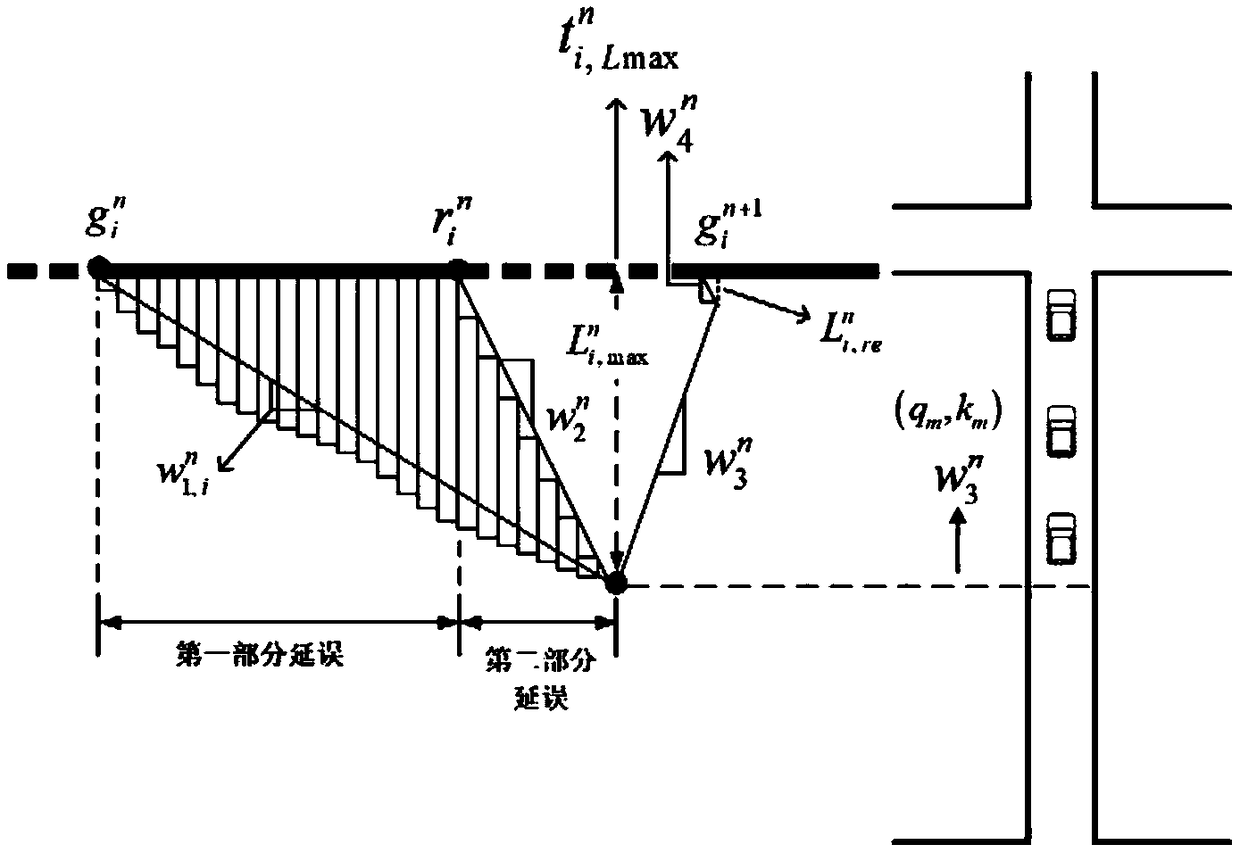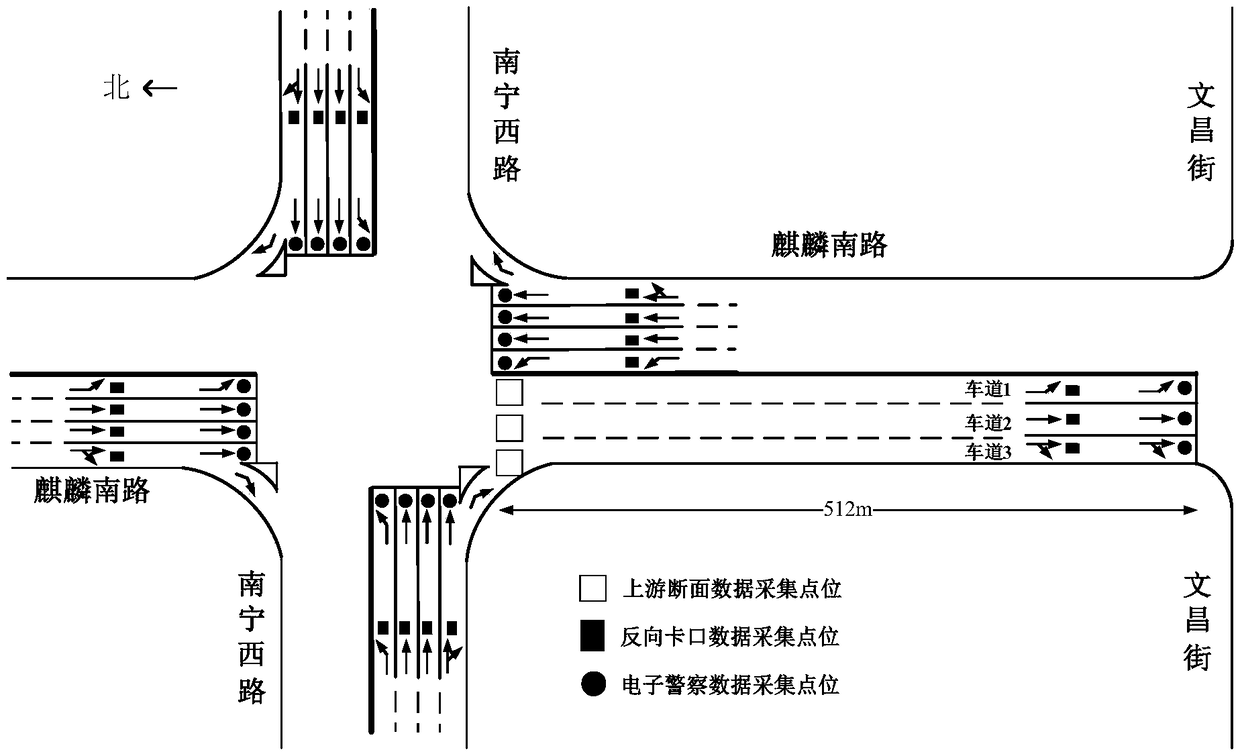Method for predicting vehicle delay through lane division in real time based on IQA
A prediction method and lane-dividing technology, applied in the field of intelligent transportation, can solve problems such as restricting the use of models, difficulty, and inability to respond to random traffic demands.
- Summary
- Abstract
- Description
- Claims
- Application Information
AI Technical Summary
Problems solved by technology
Method used
Image
Examples
Embodiment 1
[0044] Embodiment 1: a kind of IQA-based real-time lane-dividing vehicle delay prediction method, such as figure 1 shown, including:
[0045] Step 1: Take the time when a valid green light of lane i ends and there is no remaining queuing time as the start time of delay prediction; the delay is divided into two parts for calculation: the first part is the delay between the end time of a valid green light and the end time of a valid red light; The second part is the delay within the time period from the end of the effective red light to the end of the effective red light to the time when the maximum queuing length appears;
[0046]Step 2: Calculate the delay of the first part of the nth cycle of lane i (from the end of the effective green light to the end of the effective red light) delay
[0047] Step 3: Calculate the delay of the second part of the nth cycle of lane i (from the end of the effective red light to the time when the maximum queuing length appears) and with ...
PUM
 Login to View More
Login to View More Abstract
Description
Claims
Application Information
 Login to View More
Login to View More - R&D
- Intellectual Property
- Life Sciences
- Materials
- Tech Scout
- Unparalleled Data Quality
- Higher Quality Content
- 60% Fewer Hallucinations
Browse by: Latest US Patents, China's latest patents, Technical Efficacy Thesaurus, Application Domain, Technology Topic, Popular Technical Reports.
© 2025 PatSnap. All rights reserved.Legal|Privacy policy|Modern Slavery Act Transparency Statement|Sitemap|About US| Contact US: help@patsnap.com



